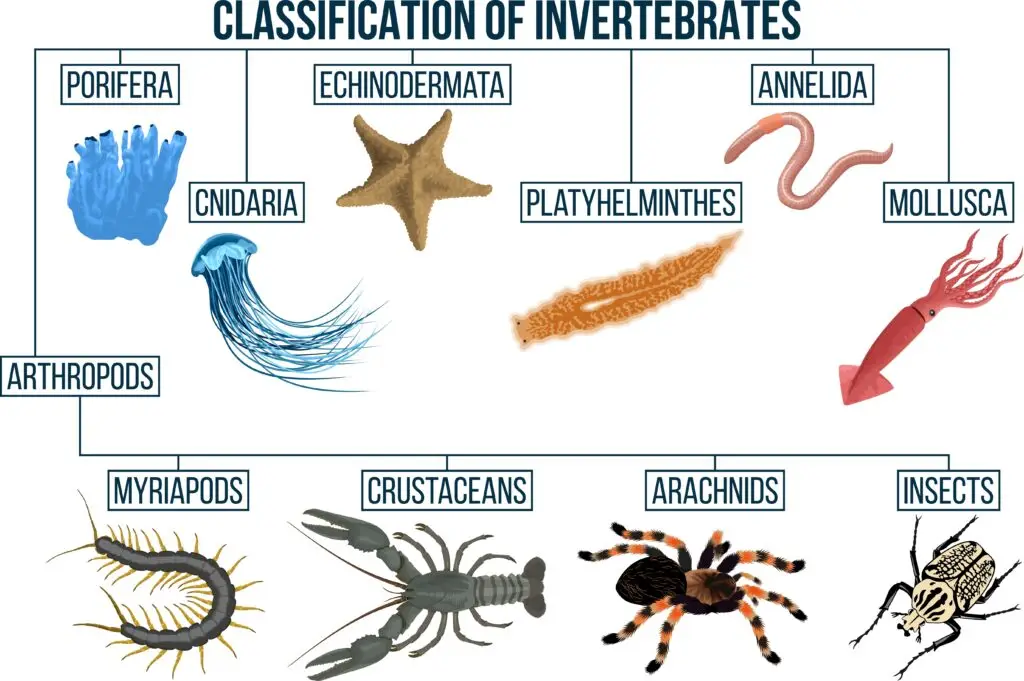Invertebrates
Definition of Invertebrates
Invertebrates are animals without a backbone, including many aquatic species such as insects, worms, and mollusks. They play vital roles in aquatic ecosystems as decomposers, prey, and nutrient recyclers.
Animals Without Backbones
Marine invertebrates are animals that live in the ocean and don’t have backbones. They are grouped into different phyla (plural of phylum), which are major groups of related animals. Here are some main phyla of marine invertebrates:
- Porifera (Sponges): Sponges are simple animals that filter water to get their food. They have lots of holes and live attached to rocks or coral.
- Cnidaria: The cnidaria group includes jellyfish, corals, and sea anemones. They often have stinging cells to catch prey and come in a variety of shapes.
- Mollusca: This phylum includes animals like snails, clams, and octopuses. Many mollusks have shells, though some, like octopuses, do not.
- Echinodermata: Echinoderms include sea stars, sea urchins, and sand dollars. They have a hard, spiny skin and a unique body structure with “arms” radiating out from the center.
- Arthropoda: This is the largest phylum, including crabs, lobsters, shrimp, and barnacles. They have jointed legs and a hard exoskeleton (outer shell).
- Annelida: These are segmented worms, like bristle worms, which are commonly found in the ocean. They have long, tube-like bodies divided into segments.
Each of these phyla represents a different type of marine invertebrate, with unique features and adaptations for life in the ocean.
Examples of Aquatic Invertebrates
Invertebrates come in many shapes and sizes. Some common ones include:
- Jellyfish: Soft-bodied animals that drift with the ocean currents.
- Crabs and Lobsters: These have hard shells to protect their soft insides.
- Octopuses and Squids: Intelligent invertebrates with no shells but strong muscles.
- Clams and Mussels: Animals that live inside hard shells and filter food from the water.
- Sponges: Simple creatures that live on the ocean floor and filter water.
Why Invertebrates Are Important
Invertebrates are a vital part of aquatic ecosystems. They:
- Clean Water: Animals like mussels and sponges filter out tiny particles from the water.
- Provide Food: Many fish, birds, and humans eat invertebrates like shrimp and crabs.
- Keep Ecosystems Balanced: Predators like octopuses help control populations of smaller animals.
Where They Live
Aquatic invertebrates can be found in many habitats, such as:
- Oceans: Coral reefs are full of crabs, sponges, and jellyfish.
- Rivers and Streams: Insects like dragonfly larvae and snails.
- Lakes and Ponds: Freshwater mussels and water beetles.
Challenges for Invertebrates
Pollution, overfishing, and climate change can harm invertebrates. For example, plastic pollution can trap crabs, and warmer ocean temperatures can damage coral reefs, which are home to many invertebrates.
